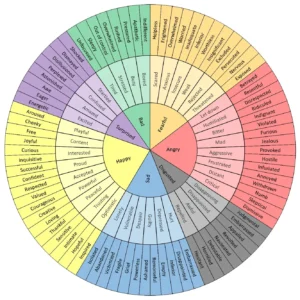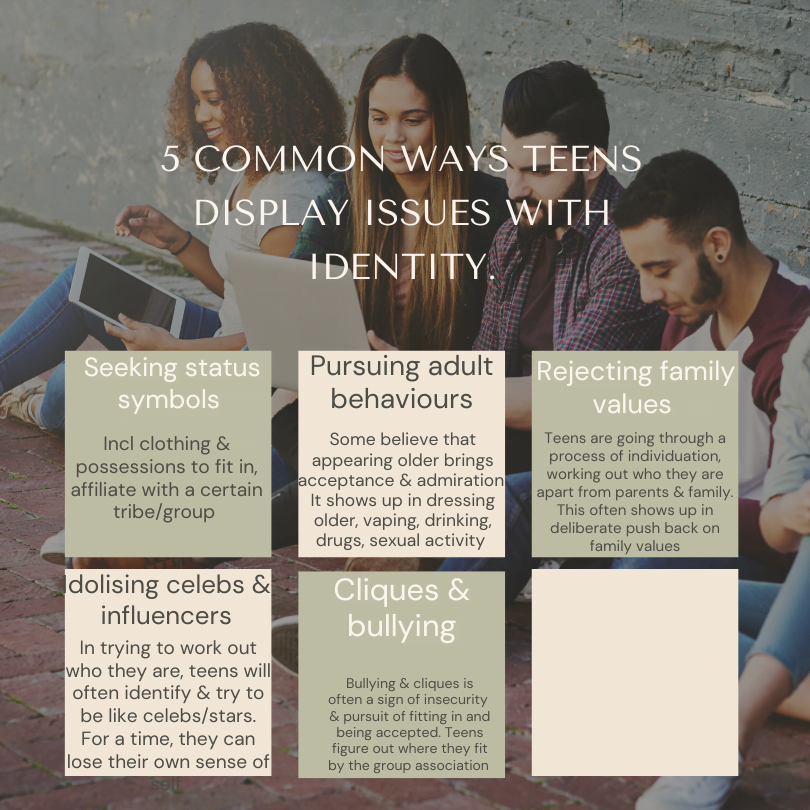
The emerging issues facing teens in 2023 (and how educators can help)
It’s a brand New Year with new opportunities and challenges.
As each year passes, the main issues facing parents and educators morph and change as culture morphs and changes. This happens quickly, and many of us find it hard to keep up. Modern schools know the importance of being proactive in providing education, intervention and scaffolding that supports a student’s learning and growth before the issues spiral out of control.
Knowing the trends and getting in front of emerging issues can be hard – and we’re here to provide research, insight and support that will help you stay in front.
The anxiety trend
Over the past 3 years, therapists have seen a huge increase in reported anxiety, with 74% of Psychologists reporting an increased demand for anxiety disorder treatment. Educators testify that this has become one of the major issues they see with COVID accelerating the trend, bringing huge challenges in day-to-day classroom management, student wellbeing and behaviour.
Anxiety can appear in different forms, from insecurity and uncertainty, to crippling panic attacks and hospitalisation. This trend will continue into 2023 and it’s important for educators and parents to develop proactive interventions that will help students manage their mental world.
Ways for schools to address anxiety
-

Chart: The Feeling Wheel Expanded vocabulary around anxiety – The word “anxiety” is overused and a label often given for a wide range of negative feelings and emotions. With the improvement in mental health education has come a rise in self-diagnosis, and teenagers will often use this one big word to describe nerves, apprehension, fear, uncertainty, risk and stress. Dr Gloria Willcox created the “Feelings Wheel” which helps young people more clearly articulate the underlying feeling they may be experiencing. We aren’t trying to talk adolescents out of their feelings but equip them with greater vocabulary to identify what is at the core of the feeling. Much of what feels like a “disorder” is actually quite a normal and even healthy emotional response to an event or challenge (like feeling nervous before a test; or having some apprehension before entering a party or new social environment).
- Have a clear and known strategy for referral – The role of the SSO, School Counsellor and Wellbeing team is increasingly important and necessary in a school system. When the whole staff knows the triggers and steps, there will be fewer students fall through cracks, and students get professional help when they need it.
- Partner with quality external providers – There are organisations who specialise in certain fields of mental health and wellbeing. Not all of them are good at connecting with teens, but finding quality workshops and resources that can inject impactful moments into your calendar can really benefit students. In our own work, we’ve often had older students approach us saying, “Oh, I remember you guys from last year! It was so great to discover my Top 5 Strengths, and I still have my cards above my desk.” These moments can be really formative and offer highlight moments to your broader strategy. TIP: Go with organisations who have a proven track record and strong research base. The goal for MyStrengths is to be the national leader in partnering schools for positive wellbeing & resilience – but you will find others!
The sleep trend
We know that sleep is a huge factor in teen mental health and unfortunately the trend is toward later bed times, more screen time and greater sleep disorders. Schools have to deal daily with the negative results of sleep debt and exhaustion, often showing up as students struggle with focus, irritability, motivation, procrastination and general tiredness.
Ways for schools to address the sleep crisis
- Partner with parents – On your own, schools and educators will find it almost impossible to intervene in the sleep hygiene of students. It’s increasingly important to partner with parents and carers, and this might mean offering more education for them. Although many parents are highly invested and hard-working, they may not be getting the right sort of encouragement and information to fight the battles that count. In 2023, MyStrengths is partnering with a growing number of schools to provide Parent Seminars and online courses that address the real needs. But it doesn’t need to wait for a big event… You could:
- Include a section in your Parent Newsletters that raise the “Topic of the Month” and hit the big themes of screen time, procrastination, healthy habits and more. The MyStrengths blog will have plenty of articles that will help.
- Survey your parents asking genuine questions around their family habits and wellbeing. If you’ve taken students through one of the MyStrengths programs, you’ll have your own sleep data and trends in the “wellbeing” tab of your online reporting dashboard.
- Download the MyStrengths Youth Wellbeing Report, helping your staff and parents understand the trends in sleep, stress, anxiety, support, and more.

- Ensure sleep routines are included in your PDH-PE curriculum: Students need to be continually reminded of the importance of having healthy sleep routines. They need to be shown the link between mental health conditions and the time one goes to bed; they need to be aware of the impact of blue light on their melatonin production; they need a different script from “that’s what time my friends go to bed” to “this is how much sleep an athlete/Olympian/champion gets”.
Identity & acceptance
In 2023, teens will face choices around screen time, social media, friendships, behaviour, motivation and resilience. But the BIGGEST issue that affects all of those areas will be around their identity and self-discovery.
During their high school years, adolescents are resolving three big questions:
-
Who Am I?
-
Do I like Myself?
-
Will I be ok in my future?

The importance of identity development for teens is huge. The development of a confident and stable sense of self is one of the key tasks of being a teenager. The teenage years are usually the first time an individual begins thinking about how their identity may affect their future and their life. This results in many teens becoming extremely self-conscious about themselves and the way others see them and can result in a self-discovery and experimental stage (Josh Watson, Aspiro).
Ways for schools to help develop positive identity
- Empower students to discover their Top 5 strengths – This is one of the most powerful, clear and easy ways to help students develop a positive foundation for identity. Not only does discovering strengths inform their identity and personality, but it helps them understand why we do what we do; which are our best areas for learning and engagement; what sort of brain I have; and why others are different from me. Having strengths as a regular, visible part of school culture will help students feel seen, affirmed and celebrated. We can help with this – our school programs help your students discover their top 5 strengths. Find out more here.
- Create ways to celebrate diversity – The Centre for Parent & Teen Communication says that “identity is shaped by a lot of factors – family, culture and societal expectations, media and friends. Young people select the environments and people they want to be around – and are shaped by these by osmosis. They adjust their beliefs and behaviours based on feedback and modelling. And they reflect on all of this while working to figure out who they are”. When schools engage in NAIDOC week, or choose a cultural theme with food, colour, art and music, it provides the opportunity for students to understand different culture and activities. Those who feel on the fringes feel seen and affirmed, which feeds into their self-discovery and worth.
- Be patient, and allow exploration – For some teens, the process of identity exploration may be more challenging. Telling teels to just “be yourself” may not be helpful if they are struggling, but giving opportunities for self-discovery can create the space to start figuring out the answers. Many students go through stages where they question their sexuality, try different styles and interests, change peer groups and push back on some of their family norms. During this time, it can be tempting to criticise or mock the exploration. Don’t pass judgement if you disagree, but hold space for them, providing them the opportunity to ask questions and work things out. Unless students are displaying harmful behaviour, many will benefit from a good dose of patience and a wide berth, allowing them the time to work it out.
Our belief is that all teenagers have immense value and worth, and that the best parts of their unique personality can be drawn out, affirmed and celebrated. When the adults in their lives see the best in them, they will develop and grow with a greater sense of self-appreciation and worth.
If you want help making 2023 the best year yet, enquire now about our school programs and staff workshops. We help you put a strengths-based approach at the center of your wellbeing.
https://www.apa.org/news/press/releases/2020/11/anxiety-depression-treatment
https://hammondpsychology.com/how-to-help-teens-with-an-identity-crisis/
https://aspiroadventure.com/blog/why-is-teen-identity-development-important/


